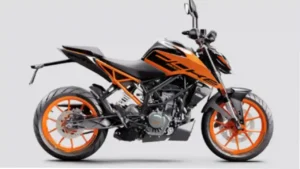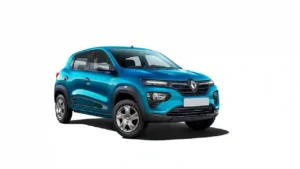Why Myths Still Drive Our Choices
Have you ever sat in a chai stall conversation where someone confidently declared, “Electric cars are useless, they can’t even run properly in India”? Chances are, you nodded or stayed silent, even if a part of you wondered whether that was actually true. The truth is, electric vehicles (EVs) in India have become the center of both excitement and confusion. While sales are rising and more charging stations are being installed every month, myths still dominate the conversation.
In this blog, let’s clear the fog. We’ll bust five of the biggest myths about electric cars in India and reveal the facts that can help you make smarter choices.
Myth 1: Are electric cars good for long distance travel in India
Imagine you are planning a Delhi-to-Jaipur trip with your family. Someone warns you, “Arre yaar, EV le jaoge toh raste me hi band ho jayegi!” That’s the myth many people still believe.
The reality is different. Today’s electric cars like the Tata Nexon EV Max, MG ZS EV, and BYD Atto 3 easily cover 300–500 km on a single charge. With fast-charging stations expanding along highways, long trips are no longer a headache.
In fact, EV communities on social media are full of stories where families completed long journeys comfortably in their EVs. The key is simple planning: check your route with apps like PlugShare or Tata Power EZ Charge.
Long-distance travel in an EV is not only possible but also peaceful. No engine noise, no petrol fumes—just smooth driving.
Myth 2: How long does it take to charge an electric car in India
One of the most common fears is waiting forever to charge. People compare it to waiting for a smartphone to charge before heading to work.
Here’s the truth: EV charging comes in three modes—
- Home charging (slow): 6–8 hours, usually done overnight.
- AC fast chargers (moderate): 3–4 hours.
- DC fast chargers (super quick): 30–60 minutes for 80 percent charge.
Think of it this way when you park your car at night and plug it in, you wake up to a “full tank.” No detours to petrol pumps, no late-night fuel price shocks.
In metro cities like Delhi, Pune, and Bengaluru, fast-charging stations are already available at malls, offices, and highways. Imagine sipping a coffee while your car charges it’s a lifestyle shift, not an inconvenience.
Myth 3: Are electric cars affordable in India 2025
The upfront price of EVs does look higher than petrol or diesel cars. But let’s do the math.
Suppose you drive 1,000 km a month.
- Petrol car fuel cost: ~₹8,000 (₹8/km)
- Electric car charging cost: ~₹2,000 (₹2/km)
That’s ₹6,000 saved every month, or ₹3.6 lakh in 5 years. Plus, EVs have lower maintenance costs—no engine oil, no clutch replacement, fewer moving parts.
Add to this government subsidies like FAME-II and state-level benefits, and the gap reduces further. Some banks even provide lower-interest loans for EVs.
A middle-class family in Lucknow recently shared how they switched to a Nexon EV. Initially hesitant, they realized after a year that their savings were significant enough to plan an extra holiday trip.
Expensive? Not when you look at the bigger picture. EVs are an investment in savings and sustainability.
Myth 4: Do electric car batteries pollute more than petrol cars
This myth comes from two fears: high battery replacement cost and environmental harm.
Yes, EV batteries are costly, but most manufacturers offer 8-year or 1.6 lakh km warranties. Real-world data shows batteries easily lasting 10 years or more if properly used.
As for pollution, multiple studies including reports from the International Energy Agency (IEA)—confirm that EVs produce fewer lifetime emissions than petrol/diesel cars, even after accounting for battery production. Recycling technology is improving rapidly, and India is already seeing companies invest in lithium battery recycling plants.
Think about it: instead of your kids breathing toxic smoke stuck in traffic, wouldn’t you prefer cleaner air powered by electricity that can increasingly come from renewable sources?
Batteries are not the problem. Old mindsets are.
Myth 5: Will electric cars completely replace petrol cars?
Some people fear sudden change, while others imagine petrol pumps disappearing tomorrow. Both are myths.
The reality is more balanced. In India, petrol and diesel cars will continue to exist, especially in rural areas where infrastructure takes time to reach. However, in cities, the shift is already visible. App-based cabs, delivery services, and personal car owners are adopting EVs faster than ever.
Change will be gradual, but unstoppable. Remember how smartphones replaced feature phones over a decade? EVs will follow the same curve.
The future is not about overnight replacement but steady progress cleaner cities, quieter roads, and sustainable mobility.
FAQs About Electric Cars in India
Q1. What are the disadvantages of electric cars in India?
Main challenges include limited charging stations in smaller towns, higher upfront price, and fewer model options compared to petrol cars.
Q2. How much does it cost to charge an EV at home?
On average, it costs ₹1.5–₹2 per km, compared to ₹7–₹10 per km for petrol cars.
Q3. Which electric car is best for long drives in India?
Tata Nexon EV Max, MG ZS EV, Hyundai Kona Electric, and BYD Atto 3 are popular for highway trips.
Q4. Do electric cars need servicing like petrol cars?
Not really. EVs require less servicing because they have fewer moving parts—no oil changes, fewer wear-and-tear components.
Conclusion: Clearing the Road Ahead
We started with doubts and debates, but by now, it’s clear: most of what we hear about EVs are old fears dressed as facts. Electric cars are not short-range toys, they don’t take forever to charge, they save money in the long run, their batteries are reliable, and they are not here to erase petrol cars overnight but to gradually clean our future.
The next time someone says, “EVs are a waste,” you’ll have the facts—and maybe the courage—to smile and say, “Actually, that’s a myth.”
The future is electric, and so can your journey be.
Heartfelt Call to Action
We put our heart into bringing you facts that matter. Your feedback and honest criticism help us grow and improve. Please share your thoughts—because your voice drives us forward. 💙





